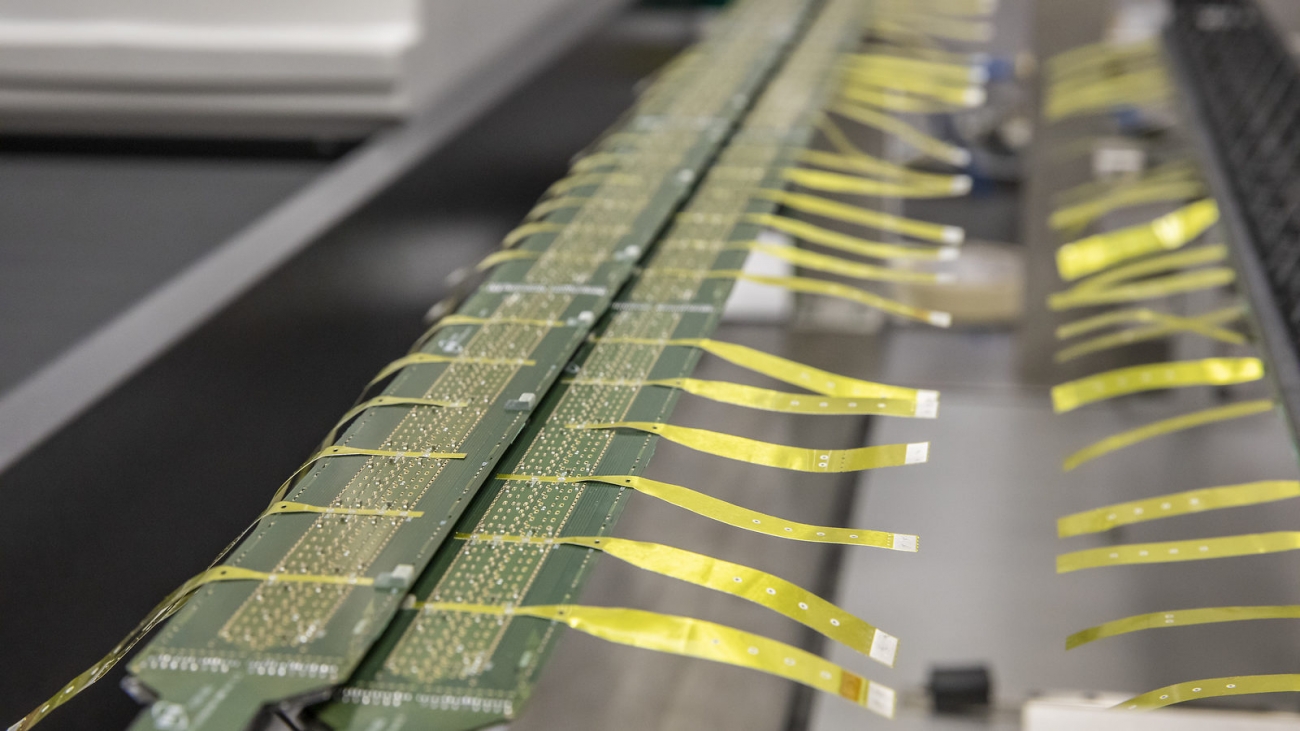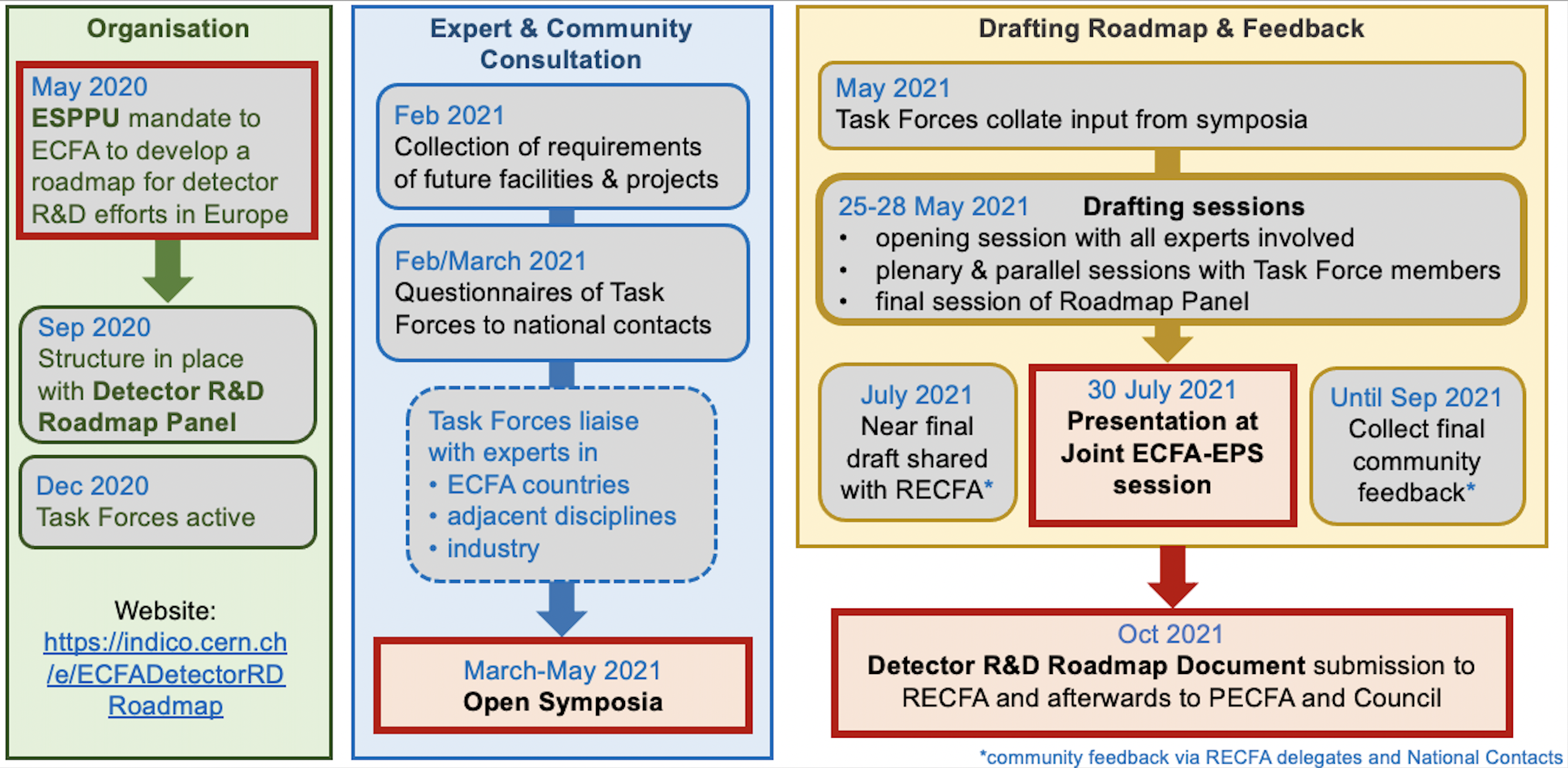Update on the ECFA Roadmap for R&D on Detector Technologies

It was reported in the previous edition of the EP Newsletter (1) that the European Strategy for Particle Physics Update (EPPSU (2) recommended that “Organised by ECFA, a roadmap should be developed by the community to balance the detector R&D efforts in Europe, taking into account progress with emerging technologies in adjacent fields“. This Roadmap which is based on the input of the community is foreseen to be published later this year.
The Detector R&D Panel set up by ECFA leads the process of developing the Roadmap together with a group consisting of nine Task Forces (3). A collection of input and wide consultation with the community has taken place through a number of mechanisms since last autumn. Key experts in the different future science programmes identified in the EPPSU presented the main unmet detector R&D requirements, surveys were conducted by the Task Forces and nine full-day Task Force Symposia were held between March and May 2021. Material from the Input Sessions, Symposia and other components of the ECFA Detector R&D Roadmap Process can be found at its webpage (3). Through a four-day intensive meeting, the material was combined into the first draft of the Roadmap document.

The findings of each Task force and by this of each technology area or cross-cutting activity are condensed in major Detector R&D Themes per instrumentation topic and Detector Community Themes which contain specific recommendations in terms of training. The priorities for R&D on the key detector types (based on gaseous, liquid or solid sensing materials) are outlined, along with that required for sensing aspects specific to photon or particle identification (PID) or energy measurement (calorimetry). Additionally, the rapidly developing topic of Quantum Sensors offers radical new opportunities and developments. Across all of the detector types the need for sophisticated read-out technologies are crucial and often the limiting factor when very large numbers of channels are to be instrumented with ever more demanding sensitivity and robustness for operation in the extreme environments of many particle physics experiments. Unique advanced engineering solutions are needed to complement these.
The relationships between the proposed R&D directions and future projects are also graphically displayed at the start of each chapter of the document. Iterations with the Laboratories Directors Group responsible for developing a roadmap for a R&D (4), helped to fine-tune the time-ordering of the future projects. In addition to the Detector R&D Themes, ten General Strategic Recommendations are made in the concluding chapter. They cover requirements across detector technologies and target the sustainability of an adequate environment in Europe for the implementation of concrete programmes covering the entire landscape of present and emerging detector technologies.
The first full draft of the Roadmap has been discussed with the RECFA delegates and National Contacts, receiving valuable feedback and comments. Based on this input, these key findings and general strategic recommendations were presented during the Plenary ECFA Session at the EPS (5) in July 2021 to the particle physics community. The preparation of the final document is currently ongoing and should be ready for approval by ECFA in November 2021 and presentation to the CERN Council in December 2021.
References
- https://ep-news.web.cern.ch/content/setting-roadmap-rd-detector-technologies
- https://europeanstrategy.cern/
- https://indico.cern.ch/e/ECFADetectorRDRoadmap
- https://indico.desy.de/event/28202/contributions/98369/attachments/67946/84991/Accelerator_RD_210730.pdf
- https://indico.desy.de/event/28202/contributions/98367/attachments/67939/85002/ECFA%20Detector%20R%26D%20Roadmap%20EPS.pdf
